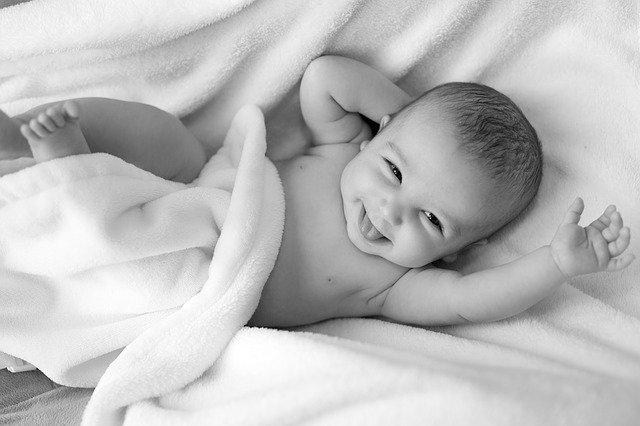When we enter into this world as a newborn, we are grappling with a vast world of unknowns. Our brains are supercharged to learn. We take in and process incredible amounts of new information without any context or rules for understanding any of it. We are trying to make sense out of lights, sounds, and physical sensations. It is amazing how quickly we learn. Learning is a scientific process at this stage. We observe the world and watch for patterns in the information we are receiving. In particular, we watch for any patterns that are associated with the removal of discomfort within us. For instance, we look for what is associated with getting fed or cuddled, or our diapers changed. It is hard to figure out what information is important and what is not, but we do our best and eventually form a hypothesis – maybe this causes that. Some of it we test out by trying selected behaviors like – If I cry, will I get fed? or If I kick my feet, will I get picked up? This is the experimental phase. We are trying to figure out what to expect from the world and how to get our needs met by interacting with the world. Our understanding of the world is still extremely limited, but if we have repeated success with our experiments and observations then our hypothesis becomes a theory. Another name for theory is belief.

Since the world is such a huge unknown, we generate beliefs to help us navigate this mysterious experience. Since our beliefs are all we have to guide us, we become very attached to them. Our survival is at stake and all we have is a handful of beliefs to keep the anxiety at bay when facing the great unknown. As children, we perceive others around us as extensions of ourselves, not as independent entities in their own right. Our brain does not become complex enough to recognize the independence of others until around the age of seven. That means that we expect others to have the same beliefs as we do and feel entitled to have them act that way. Beliefs are just the stories we have created to help us feel safe in a world way bigger than our ability to understand. Children do this by establishing expectations for what is going to happen and how things work out.
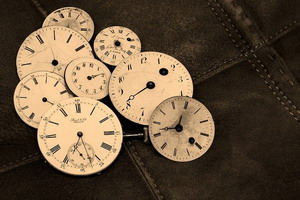

This unique condition of how the child’s mind works generates a long list of beliefs about how they think things work. Children also have no sense of time. Ten minute from now is the same as forever to them. If a need is not met right away, the child may come to believe that it will never be met. Because of their relative helplessness that list becomes a demand; a set of entitlements they feel they must have or they might not survive. Moreover, because of the forever at risk feeling, the simple need turns into extreme desires and demands for absolute outcomes that will last forever. Most adults still feel this way subconsciously. These beliefs/demands were how they pushed away the unknown of the universe, and without them, they feel they will be lost. They have replaced the unknown with expectations and “supposed to be this way” stories. Here is a partial list of subconscious beliefs I was able to come up with. See if any of them feel true to you today. It will read I am entitled to:
unconditional love
be the center of attention
instant gratification now
everything my way
being valued without participation
everything/support for free
unlimited loving attention
be the first highest priority
do whatever I want
have my needs and wants anticipated and met
have others understand my thoughts and feelings
have everyone see and be my way
be totally supported
unconditional approval
be protected no matter how I act
others sacrificing for me
others wanting to serve me
feel special and perfect
be treated as special
always be believed
always be seen as right
have anything I want
be anything I want
be obeyed
be accepted for who I am
be wanted, needed, loved, valued, and appreciated
belong without participation
have others behave the way I want
be respected because I exist
be a winner/celebrated because I exist
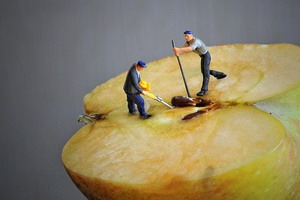
These beliefs live at the very core of our being. Each one is just a slightly different take on the basic need the child has to feel safe, discomfort-free, and without lack. These are different stories we told ourselves as children to chase away the fear of the big unknown world. Most of us now unconsciously or consciously spend a huge part of our lives trying to move our story/belief/theory into a proven conclusion; into reality. These beliefs are the source of most of our unhappiness and discord with life as adults, because all of them are simply not true in the way children see them. They are good desires when we embrace them as things we want to create in our lives, either from inside ourselves or through equal mutual exchange with others. These desires are the source of our greatest happiness when it looks as though we might be able to make life happen the way we believe it should. Our emotional pain and pleasure are built from these stories.
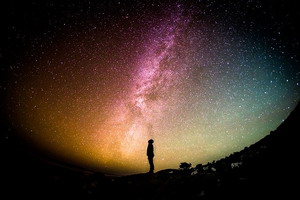
These are the primal feelings that drive most human behaviors. The lie in these behaviors is the fundamental child belief that they are entitled to these things from the universe just because they exist. It simply is not true. It is not true because these things all come from our interactions with other people that are just as needy inside as us. When you learn to recognize that everyone has these stories at their core and you create positive exchange-based relationships with others, then you can make them real. Life happens either through self creation or mutual participation in creation. These are the so-called win-win relationships. You can give each other love, respect, attention, value, acceptance, and so on, but this has to be as an equal exchange in order to be sustainable. The skills to do this are what Heartflow coaching is all about.
Religion will tell us that we can get these things from our loving God since God is infinite and unlimited – not subject to fear, lack, or the unknown. Thus religion has a powerful draw for so many people. It is that fear of lack, discomfort, and the unknown threats to our safety that are at the heart of our childhood beliefs.
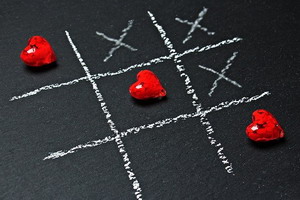
Many of these desires you can create for yourself by your participation and service to life once you break out of the false belief that you are entitled to them. You can have the stuff you want, become a winner and be celebrated, even get people to do what you want, but this requires you to show up and participate well in the world. The world is not going to give it to you simply because you have mastered breathing and taking up space. This is the difference between being an adult and being a child. The child’s mind thinks magically, that life happens just because they wish it. Adults know that life happens because you show up and work to create it. More importantly, adults understand that we are all in this together. We have to work together through mutually beneficial exchanges. Heartflow teaches the skills to engage life in an appropriate adult manner in order to get the adult version of these childhood desires met. The child can not see that bigger picture as their brain thinks that only they exist and everyone else is just an extension of themselves. Their theory about life is flawed. It is a good try, but they just can’t see the bigger picture. The earth is not flat and we are not the center of the universe.
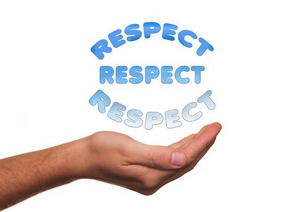
With a little modification (called growing up) we can have our deepest desires met – when they include a deep respect for everyone else. Life wants to support us. We just have to learn to play by the rules; the most basic being, the Golden Rule. This is the basis of a healthy civilization. The next time you feel outraged by anything in life that does not immediately threaten your survival, you can be rest assured that one of these childhood beliefs has been triggered. It is not life’s job to be the way we want. It’s our job to negotiate equitable exchanges for what we want if it is available. With the proper skills, you can go out there and create the life you love.
Take care,
David
